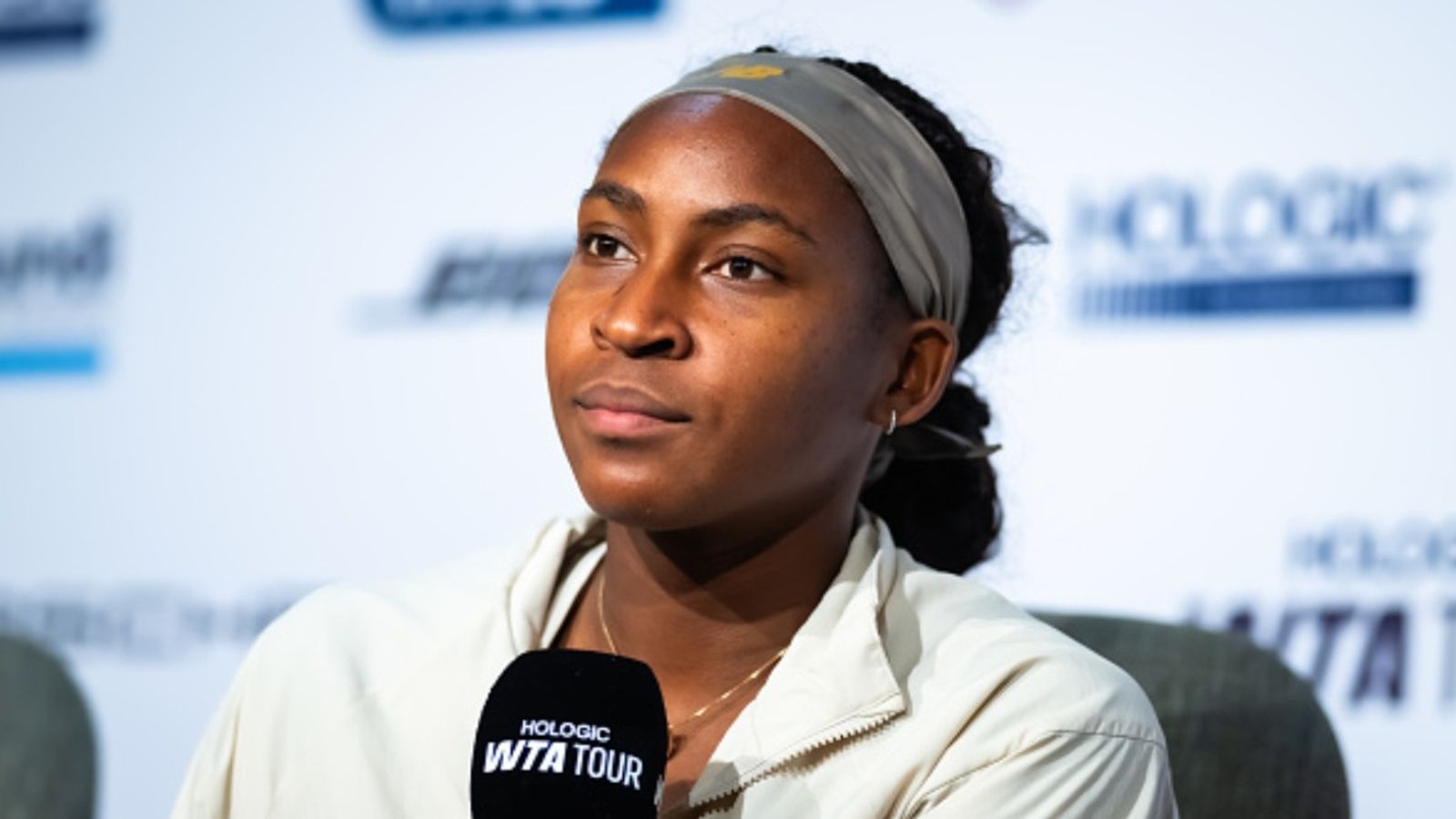America’s World No. 4 Coco Gauff has reignited buzz around a career-defining moment from her past, revealing a poignant exchange with one of tennis’ greatest icons after a seismic upset. The 20-year-old, battling to revive her 2025 season after early exits at the Australian Open, Qatar Open, Dubai Tennis Championship, Indian Wells Masters, and Miami Open, is now eyeing redemption at the Stuttgart Open.
As she gears up for Saturday’s quarterfinal clash against Jasmine Paolini, a resurfaced story from Gauff’s breakthrough win over a U.S. legend offers a glimpse into her unshakable mindset—and why she refuses to say “sorry” for making history.
Coco Gauff’s unapologetic tribute to her mentor
The year was 2019. A 15-year-old qualifier named Coco Gauff stepped onto Wimbledon’s hallowed grass to face Venus Williams, a seven-time Grand Slam champion and former World No. 1. What followed was a changing of the guard: Gauff’s fearless play toppled Williams in straight sets, marking the teen’s arrival as tennis’ next phenom. But it was their post-match embrace that revealed Gauff’s maturity beyond her years.
At the net, Gauff didn’t utter the expected apologies for ending a legend’s run. Instead, she seized the moment to honor Williams’ legacy.
“I wasn’t apologising. I was just telling her thank you for everything she’s done for the sport,” Gauff later shared. “She’s been an inspiration for many people. I was just really telling her thank you.”
For Coco Gauff, whose gangly frame and powerful baseline game drew early comparisons to Venus Williams, the victory was both personal and symbolic.
“I definitely get compared to Venus a lot. Our body shape is kind of the same. We’re both tall. We obviously play similarly,” she admitted.
The win wasn’t just a milestone—it was a torch-passing moment, with Williams recognizing the dawn of a new era as her own Wimbledon journey neared its twilight.
How that win shaped Gauff’s path
Coco Gauff’s 2019 Wimbledon triumph wasn’t a fluke—it was a prophecy. Four years later, she fulfilled her destiny by capturing the 2023 US Open, becoming the youngest American woman to win a Grand Slam since Serena Williams in 1999. The poise she showed against Venus—thanking rather than consoling—mirrored the self-belief that’s defined her career.
Yet 2025 has tested that resolve. A sluggish start, marked by unforced errors and shaky serves, has critics questioning her consistency. Her Stuttgart Open run, though, hints at a resurgence. A gritty three-set win over Emma Raducanu showcased her trademark fighting spirit, while her dominant serving against Qinwen Zheng (8 aces, 82% first-serve points won) signals regained confidence.
Stuttgart’s Stakes: More than just a title
For Gauff, the Stuttgart Open isn’t just about snapping her trophy drought—it’s about reclaiming narrative control. Paolini, her quarterfinal foe, poses a unique challenge: the Italian’s crafty drop shots and relentless court coverage demand precision. But Coco Gauff’s revelation about the Venus Williams exchange underscores her mental edge. She thrives under pressure, fueled by a blend of gratitude and grit.
A deep run here could also silence doubts about her adaptability. Clay, historically her weakest surface, now offers a chance to prove her evolution. With the French Open looming, Stuttgart serves as a litmus test for her retooled game—and her ability to channel past triumphs into present-tense dominance.
Gauff’s refusal to apologize for her Wimbledon win speaks volumes. It’s a mindset that blends respect with rebellion—honoring icons while unapologetically chasing their thrones. As she vies for Stuttgart glory, one truth remains: in tennis, as in life, saying “thank you” can be the ultimate power move.


